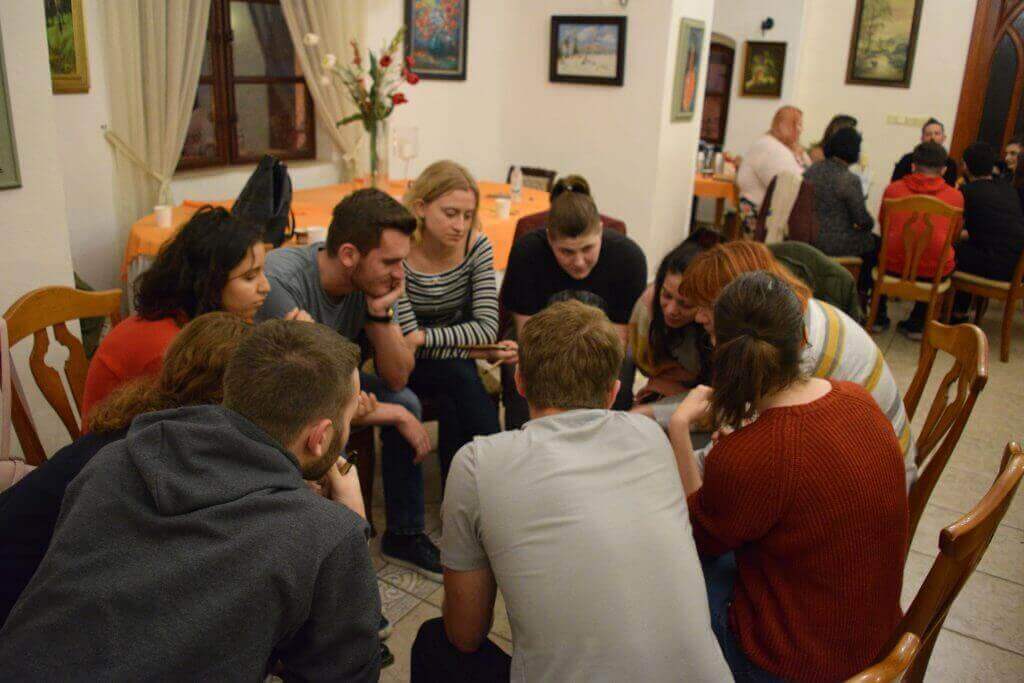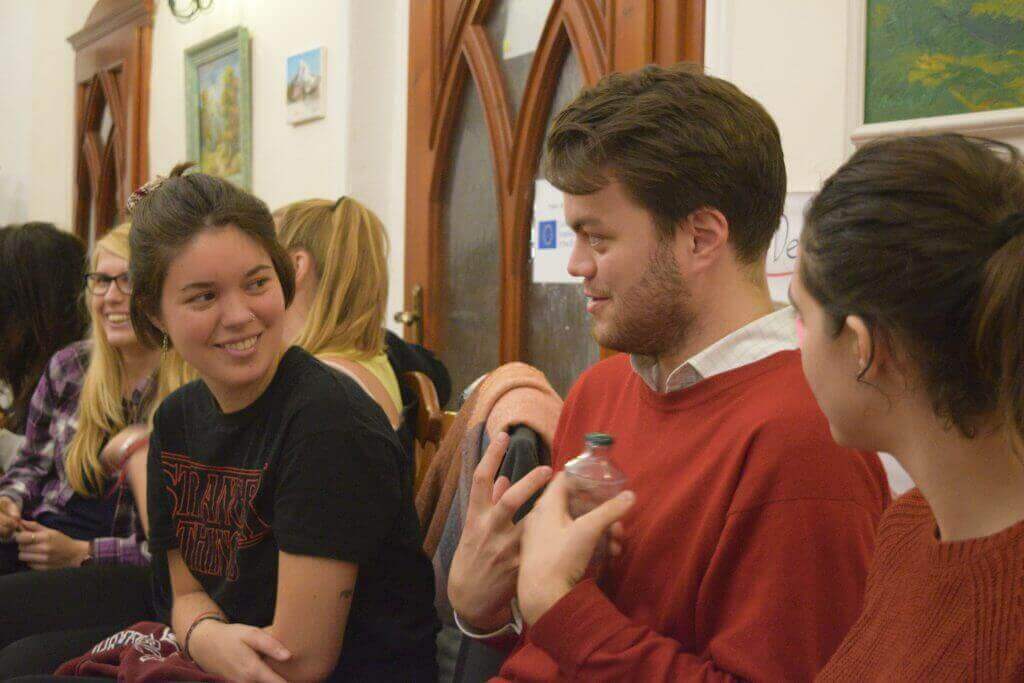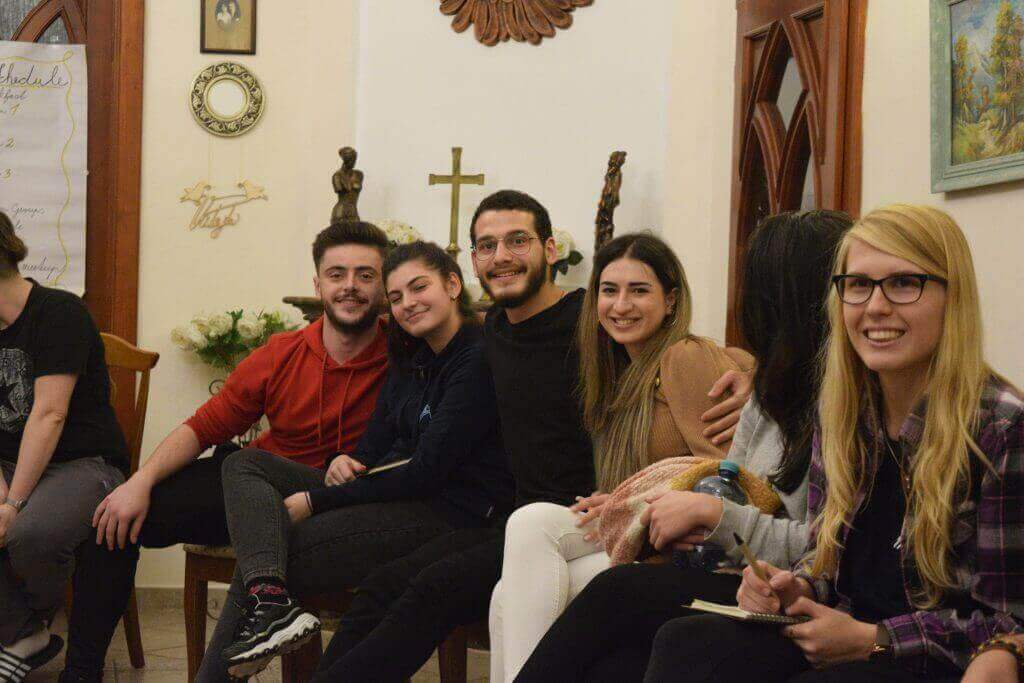Be the change
This training course for youth workers and trainers aimed to explain the importance of being present here and now and to use this in the youth work (9 attitudes of mindfulness, keeping the focus, meditational techniques according to “Mindfulness meditation” by Jon Kabat-Zinn)
Objetives
- To acknowledge the situations in which the youth workers are falling into their negative patterns including stereotypes and prejudices about the youth and to focus on using them for their own benefit (these situations may include discrimination, exaggerated emotivity, under/overestimation of oneself etc.)
- To equip youth workers with methods, tools and techniques based on personal development and non-formal learning which they can use while working with the youth on the topic of patterns, habits and mindfulness (e.g. systematic coaching, Thinking traps model, gestalt theater etc.;)
- To help youth the participants are working with, to create opportunities and find ways how to get over their patterns (arising from social exclusion, intercultural misunderstandings etc.)
- To support participants in understanding of learning processes and especially in the context of intercultural learning and non-formal education, so they are able to use them effectively
- To help youth workers show the youth the pitfalls of non-objective ideas and radicalism
- To create a booklet which will be summarizing the practices used in the project and which will result from the cooperation of the participants. The booklet will be shared with all partner organizations, which will be asked to promote it further.
- To implement all above mentioned in the practices of every participant back in their home country and to prove it by providing audiovisual material from the follow-up activities maximum 2 months after the end of the training course.
- To encourage international cooperation, networking and knowledge sharing among youth workers throughout Europe.
Working with youth is many times demanding and stressful. While being in stress youth workers tend to fall into their behavioral patterns, prejudices and reactions coming from their personal experience which can bring them into unwanted situations. These include getting too personal; too emotional; offended, irritated and angry by trivial comments; having prejudices coming from their cultural and social background including discrimination of the marginalised groups (LGBT+, rights of women, different religion etc.); prioritising one person from another; feeling that they are not enough, not doing their job properly.
If the youth workers fall out of his/her role too often, it can be dangerous. We found a need coming from the youth workers aiming for staying focused here and now and finding a way how to work with their patterns and habits, use them effectively and stay detached. Through knowing their patterns and how to work with them, youth workers can connect with the youth and be of greater help for both sides. Thanks to this we would like to avoid youth from falling into unwanted situations, enhance their critical thinking and not let them be influenced by different, many times, radical groups.
Be the change fulfilled the need and empower youth workers to stay in the present moment in order to find the right way how to use/fight their abovementioned patterns. We believe that one has to start from oneself in order to change something and improve. Once they acknowledge it, they are ready to work with the youth on their own patterns and habits.
By providing the youth workers with different tools and techniques derived from mindfulness, embodied physical theatre, neuro-linguistic programming, confrontation and other non-formal methods we aim to show them how they can connect with the youth more easily through sharing something they have in common (patterns/habits, prejudices, fears, stress, other emotions). We wanted the youth workers to first try the methods themselves to see how they are working for them. Afterwards, we encourage them to choose and find their own method(s) which work for them the best and which they can use in their everyday practice.
Results
We wanted to create a space in which the youth workers can bring themselves in and share with each other what they already know regarding the project topic. We believe that sharing is caring and have a powerful impact on an individual. With the project, we wanted to approach youth workers from various backgrounds so they can lead the youth and be the eye-opening, informative and objective body in the youth’s process of learning and self-development.
“În seara zilei de 15 Noiembrie, 30 de lucrători de tineret s-au întâlnit la Hotel Phoenix, Slovacia, pentru a parcurge un jurnal al schimbării. Folosind metode non-formale precum “Nume+semn” și “Human bingo”, au început prin a se cunoaște și a vorbi despre ei. Bineînțeles, nu a lipsit partea cu așteptări, contribuții și temeri, intitulată sugestiv “Desires, Resources, Challenges”.
Au învățat apoi despre cele 3 zone – zona de confort, zona de challenge și zona de panică – urmând ca în restul trainingului să experimenteze din plin zona de challenge, fără a intra însă în zona de panică. Au trecut apoi la partea de stereotipuri și au început prin a crea diverse ipoteze, folosind metoda “prima vedere”. A urmat apoi ziua numită sugestiv “Myself” în care au pătruns în ei înșiși. Au dat definițiile unor termeni precum stereotip, tipar, concept sau prejudiciu, cine ne influențează în crearea opiniilor și au creat “Steaua personală”. Au continuat cu cele 9 principii ale înțelegerii și le-au pus în practica folosind metoda “The tricky 7”.
Folosind metoda “scenetei”, au explorat capcanele gândirii, și de asemenea, și-au întărit abilitățile de observare folosind metoda “what do I see”. Au învățat despre ipoteze versus fapte prin a răspunde la întrebări 2 câte 2 , unul despre celălalt aplicând metoda “Solomon’s teahouse”. Au încheiat prin a împărtăși unul celuilalt despre propria familie, cum e mama, cum e tata și cât de apropiată este relația față de părinți. Au intrat apoi în lumea NLP și NVC și au practicat filtrele vorbirii, folosind ca și metodă “Povestea Emmei”.
Au avut apoi ocazia să împărtășească fiecare din experiența sa de lucrător de tineret în cadrul zilei de Open Space. S-au organizat ateliere atractive și interesante precum: “Mindful teambuilding”, “Comic book” , “Mindful contact improvisation”, “Expression through poetry” sau “Compromise to survive”. Au revenit din nou la ei înșiși, au învățat să ofere și să primească feedback și au practicat metoda coaching, în echipe de câte 3 persoane.
Au încheiat trainingul prin a-și desena fiecare portretul și a primi mesaje. La final, și-au oferit unul celuilalt certificatul youthpass. Tin să mentionez că în fiecare seară au avut parte de “Candle circle”, o metodă inedită prin care au avut ocazia să vorbeasca fiecare, din suflet, fără a fi întrerupți, iar în 2 dintre cele 9 seri, au organizat seri interculturale, în care au vorbit despre stereotipuri legate de poporul fiecărei țării participante în proiect. Au improvizat și s-au distrat pe cinste.
În finalul acestui articol doresc să aduc mulțumiri echipei mele din România – Dionisie și Daniela – pentru sprijinul oferit pe tot parcursul proiectului; doresc să mulțumesc echipei de organizare pentru succesul acestui training și cel mai important, doresc să aduc foarte multe multumiri celor 2 traineri, Filip și Monika, pentru că au dus la bun sfârșit un întreg și captivant proces de învățare.”
Alexandru, Bucuresti
Project: Be the Change
Applicant: A.D.E.L. – Association for Development, Education and Labour
ID: 2019-2-SK02-KA105-002219
Want to see more about our Erasmus events?
CLICK to see how our Erasmus events support participants increase knowledge and skills.
Build confidence | Recognize own abilities | Broaden horizons



